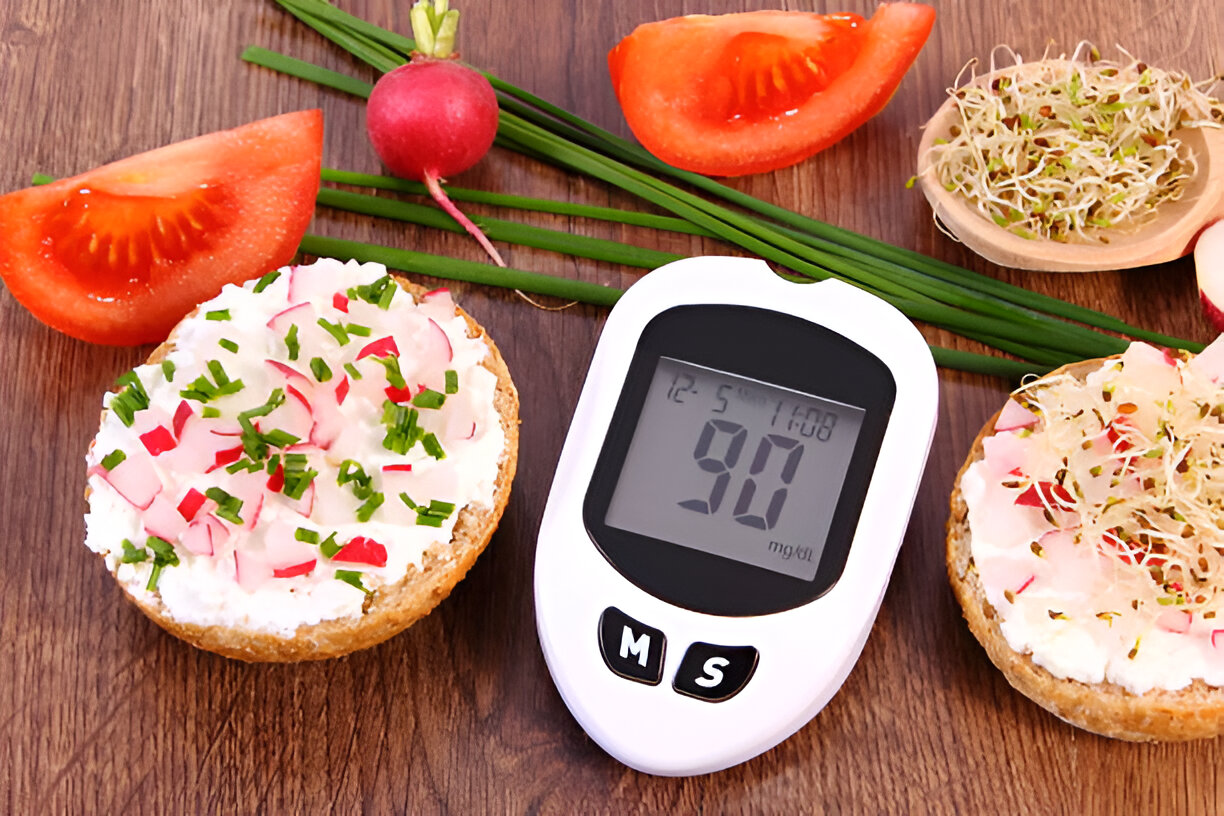15 Easy Ways to Lower Blood Sugar Levels Naturally
Living with diabetes means constantly being mindful of your blood sugar levels. While medication plays a crucial role, there are also natural ways to support healthy blood sugar management. This article explores 15 Easy Ways to Lower Blood Sugar Levels Naturally.

Understanding Blood Sugar and Diabetes
Before diving into the tips, let’s briefly review what blood sugar is and how it’s affected in diabetes.
- Blood Sugar 101: Blood sugar, or glucose, is the primary energy source for your body’s cells. It comes from the food you eat and is regulated by the hormone insulin, produced by the pancreas. You can learn more about the role of insulin in blood sugar regulation on the American Diabetes Association website.
- Diabetes and Blood Sugar: In diabetes, either your body doesn’t produce enough insulin (Type 1) or your cells don’t respond properly to it (Type 2). This leads to elevated blood sugar levels, which can have serious health consequences over time. For more information on the different types of diabetes, you can visit the National Institute of Diabetes and Digestive and Kidney Diseases
15 Natural Ways to Lower Blood Sugar Levels Naturally
Here are 15 Easy Ways to Lower Blood Sugar Levels Naturally:
1. Prioritize a Balanced Diet:
- Focus on whole foods: Choose unprocessed, nutrient-dense foods like fruits, vegetables, lean proteins, and whole grains. These provide sustained energy and help regulate blood sugar.
- Limit refined carbohydrates: White bread, sugary drinks, and processed snacks cause rapid spikes in blood sugar. Opt for complex carbohydrates like brown rice and quinoa instead.
- Increase fiber intake: Fiber slows down the absorption of sugar into the bloodstream, preventing spikes. Excellent sources include beans, lentils, and whole grains.
2. Manage Carbohydrate Intake:
- Portion control: Be mindful of your carbohydrate portions at each meal. A registered dietitian can help you determine the right amount for your needs.
- Spread out carbohydrates: Instead of consuming all your carbs at once, distribute them throughout the day to maintain stable blood sugar levels.
3. Stay Hydrated:
- Water is key: Drinking plenty of water helps your kidneys flush out excess sugar, lowering blood sugar levels.
- Limit sugary drinks: Sodas, juices, and energy drinks are loaded with sugar and can spike your blood sugar.
4. Get Regular Exercise:
- Find an activity you enjoy: Whether it’s brisk walking, dancing, or swimming, regular physical activity improves insulin sensitivity and helps your body use sugar more effectively.
- Aim for consistency: Try to get at least 30 minutes of moderate-intensity exercise most days of the week.
5. Manage Stress:
- Stress hormones raise blood sugar: When you’re stressed, your body releases hormones that can increase blood sugar levels.
- Find healthy coping mechanisms: Practice relaxation techniques like yoga, meditation, or deep breathing to manage stress.
6. Prioritize Sleep:
- Lack of sleep affects insulin sensitivity: Aim for 7-9 hours of quality sleep each night to support healthy blood sugar regulation.
- Establish a sleep routine: Go to bed and wake up around the same time each day to regulate your body’s natural sleep-wake cycle.
7. Maintain a Healthy Weight:

- Weight loss improves insulin sensitivity: Even a small amount of weight loss can significantly improve your body’s ability to use insulin effectively.
- Focus on sustainable changes: Make gradual, long-term lifestyle changes instead of resorting to crash diets.
8. Monitor Blood Sugar Levels Regularly:
- Track your progress: Regularly monitoring your blood sugar levels helps you understand how your body responds to different foods and activities.
- Work with your healthcare team: Share your blood sugar readings with your doctor or diabetes educator to adjust your treatment plan as needed.
9. Add Apple Cider Vinegar to Your Diet:
- May improve insulin sensitivity: Some studies suggest that apple cider vinegar may help improve insulin sensitivity and lower blood sugar levels.
- Consume in moderation: Start with a small amount (1-2 tablespoons) diluted in water before meals.
10. Increase Cinnamon Intake:
- May mimic insulin’s effects: Cinnamon contains compounds that may help your body use insulin more effectively.
- Add to your meals: Sprinkle cinnamon on your oatmeal, yogurt, or coffee.
11. Consider Chromium Supplements:
- Essential mineral for glucose metabolism: Chromium plays a role in regulating blood sugar levels.
- Consult your doctor: Talk to your doctor before taking any supplements, as they can interact with medications.
12. Try Berberine:
- Herbal supplement with potential benefits: Berberine has been shown to lower blood sugar levels and improve insulin sensitivity.
- Use with caution: Berberine can interact with certain medications, so consult your doctor before use.
13. Get Enough Magnesium:
- Important for insulin function: Magnesium is involved in various bodily processes, including insulin secretion and action.
- Food sources and supplements: Include magnesium-rich foods like leafy greens, nuts, and seeds in your diet, or consider a supplement after consulting your doctor.
14. Practice Mindful Eating:
- Pay attention to your body’s signals: Eat slowly and savor each bite, paying attention to your body’s hunger and fullness cues.
- Avoid distractions: Minimize distractions like TV or phones while eating to focus on your meal and avoid overeating.
15. Work with a Registered Dietitian or Certified Diabetes Educator:
- Personalized guidance: A registered dietitian or certified diabetes educator can provide personalized advice on meal planning, carbohydrate counting, and other strategies to manage your blood sugar levels effectively. You can find a registered dietitian specializing in diabetes management through the Academy of Nutrition and Dietetics website.
Important Note:
The information in this article is intended for informational purposes only and does not constitute medical advice. Always consult with your healthcare provider before making any changes to your diet, exercise routine, or medication regimen.

My Diabetes Way is committed to providing you with the resources and support you need to live a healthy life with diabetes. By incorporating these natural strategies into your daily routine and working closely with your healthcare team, you can take control of your blood sugar levels and improve your overall well-being. For more information on managing diabetes, check out our article on creating a diabetes-friendly meal plan
